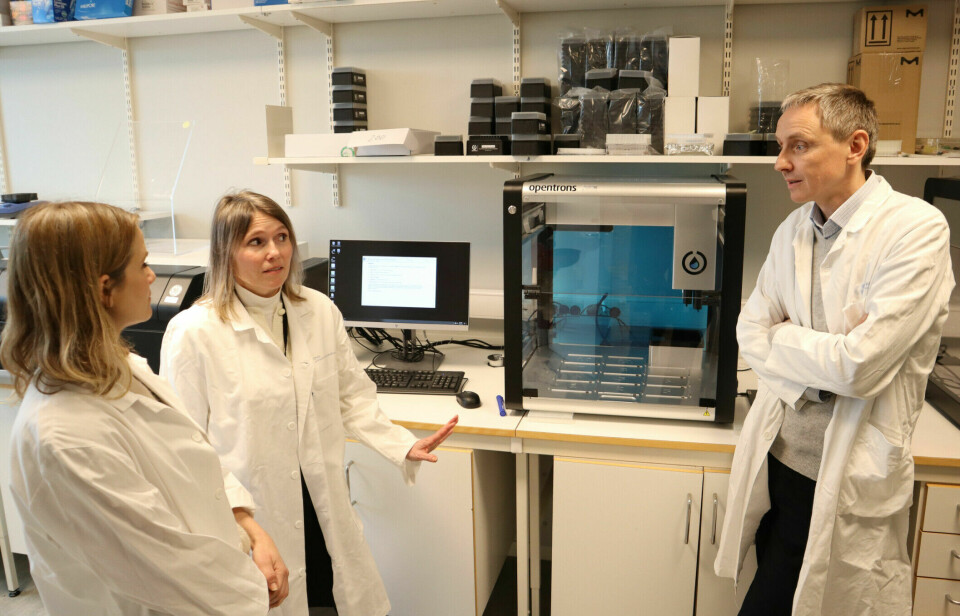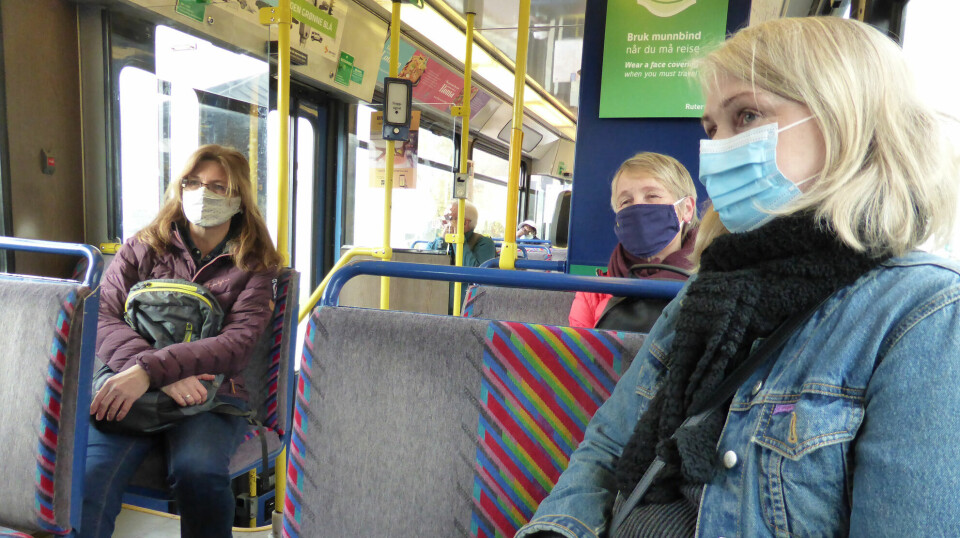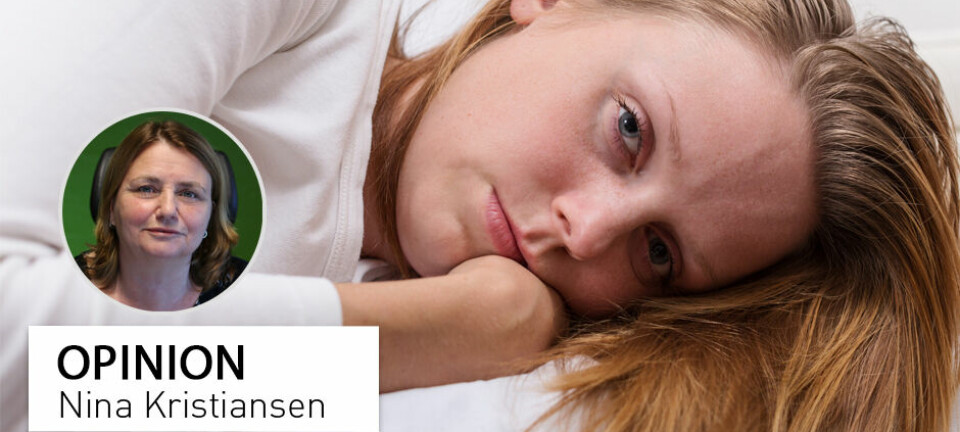
Norwegian study: People who have had Covid-19 have a poorer memory
They also have a worse memory than those who have not had Covid-19.
These insights stem from the latest findings of the Covid-19 study at Oslo University Hospital (OUS).
The findings have been published in the New England Journal of Medicine.
Large Covid-19 study
The comprehensive Covid-19 study commenced shortly after Norway was impacted by the pandemic. The study aimed to investigate the long-term effects on individuals who have been infected by Covid-19.
This study is among the largest of its kind in Norway, with around 200,000 participants.
One of the advantages of the Covid-19 study is that it was launched early in the pandemic, before the virus had gained a proper foothold in the Norwegian population. This timing allowed researchers to gather valuable data on the health and behaviour of participants both before and after contracting Covid-19.
Participants of the study were also invited to undergo a memory test. This was a questionnaire that was sent out to the 112,000 Norwegians who participated. The questionnaire is intended to measure how the participants themselves perceive their everyday memory.
Poor memory in everyday life
It turned out that those who have had Covid-19 struggled more with memory after Covid-19 than before they became ill. They also struggled more than those who had never tested positive for Covid-19.
The researchers examined what is called everyday memory.
One of the questions asked how often you experience having a word on the tip of your tongue, but you are unable to retrieve it.
Or that you repeat something you have already said.
Participants rated their answers from zero to four – from rarely to often.
The questions were part of a so-called validated questionnaire, explains Arne Søraas, one of the researchers behind the new study. This means that the questionnaire is approved in research communities and is often used in this type of research.
“We know that if you score poorly on the questionnaire, you may have memory problems that affect your quality of life,” says Søraas.
He is a doctor and researcher at Oslo University Hospital.
Infected multiple times
Many in Norway have been infected with Covid-19 not just once, but several times since spring 2020. Does this have any impact on memory problems?
The researchers do not yet have an answer to this.
“That’s something we’ll have to look into further,” says Sonja Brunvoll, another of the researchers behind the study.
What is the risk of experiencing memory problems if you get reinfected with Covid-19?
If you haven't had memory problems after the first or second time you had Covid-19, what about the third and fourth time?
Søraas references studies from other regions, like Canada, where it seems that memory problems increase each time you get reinfected.
“So, even if you’ve had Covid-19 four times, it doesn’t necessarily mean you're immune to its effects the fifth time around,” says Søraas.
Despite the uncertainty surrounding the virus due to its novelty, Søraas is optimistic that future findings might reveal a pattern of diminishing effects with successive infections. However, conclusive evidence is still pending.
Which variant causes the most problems?
Those who contracted Covid-19 at the very beginning were infected with the first Alpha variant. It caused more severe illness than any of the subsequent variants, and those who fell ill were also unvaccinated. These are the participants the researchers have followed for the longest time, up to three years after Covid-19.
The majority of participants that Brunvoll and colleagues have followed were infected with the Omicron variant. It caused less severe disease, and most were vaccinated at that time. These participants took the memory test up to one year after having the disease.
“It will be very important to continue monitoring these individuals,” says Brunvoll.
The researchers are keen to find out if these individuals also score as poorly on memory tests three years later, similar to those who were infected with the first variant.
15 per cent experienced memory problems
The study by Ellingjord-Dale, Brunvoll, and Søraas includes 112,000 participants.
“One of the strengths of this study is that we have followed so many participants for up to three years,” Merete Ellingjord-Dale says.
Previous scientific articles from the Covid-19 study show that 10 to 15 per cent of those who have had Covid-19 report concentration and memory problems.
In this publication, the average score for those who have had Covid-19 is between 0.7 and 0.8, where four is the worst possible memory.
Ellingfjord-Dale points out that this is an average score.
“There are individuals within this group scoring above this average,” she says.
“For them, the impact on memory and concentration could significantly detract from their quality of life. So for those affected, this is serious.”
Further follow-up
The researchers plan to monitor whether the problems persist or diminish over time. So far, they have demonstrated that memory problems persist three years after the first positive Covid-19 test.
“If this continues, it represents significant economic costs to society,” says Ellingjord-Dale.
Søraas finds it concerning that memory problems last so long and was somewhat surprised that the curve did not start to decline after three years.
“Initially, it was believed that Covid-19 was strictly a respiratory infection, but later, its lingering effects became apparent. It turns out that effects like memory problems could extend up to three years or possibly even longer, based on our observations,” he says.
“If there are four million infections every year in Norway, that’s clearly serious.”
Worse for younger women
Both age and gender affected how the participants performed on the memory tests.
Women reported more memory problems than men.
“It’s not unusual for there to be gender differences in diseases,” says Søraas.
He suggests that exposure levels during infection could explain this disparity. Women working in healthcare or with children might have been infected with a large amount of the virus at once, the researcher explains.
“And we see that the more ill you were with Covid-19 in the acute phase, the more memory problems you can expect to experience later,” he says.
Women are also more susceptible to autoimmune diseases such as Sjögren's syndrome, multiple sclerosis, and coeliac disease.
“One theory suggests long Covid might be linked to autoimmunity,” says Søraas.
Internet questionnaires exclude very old participants
More memory problems were reported among younger than older individuals.
This may be due to the selection of participants in the study, explains Brunvoll.
"The composition of older study participants is particularly telling. For instance, the necessity to access the survey using BankID online likely means the healthiest individuals participated. We’re therefore cautious about concluding that younger people are more affected by memory problems," Brunvoll clarifies.
The minimum age to participate in the Covid-19 study is 18 years, and the average age is 49 years.
———
This article was updated 07.03.2024 at 12:27: A clarification has been added that the memory test the researchers refer to is a questionnaire. This was sent out to 112,000 Norwegians to measure how they experience their everyday memory.
———
Translated by Alette Bjordal Gjellesvik
Read the Norwegian version of this article on forskning.no
Reference:
Ellingjord-Dale et al. Prospective Memory Assessment before and after Covid-19, New England Journal of Medicine, vol. 390, 2024.







































